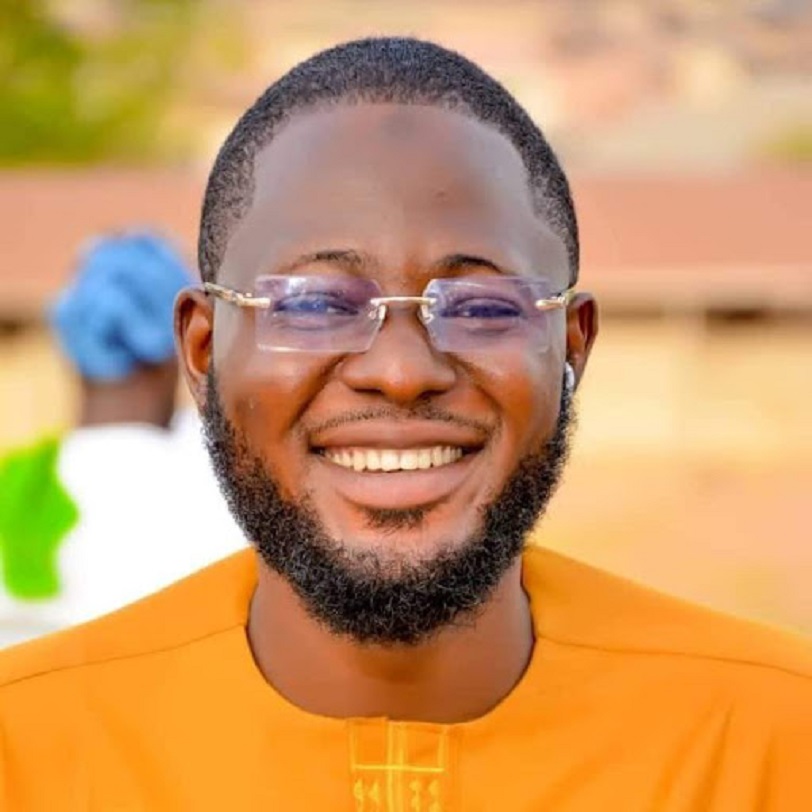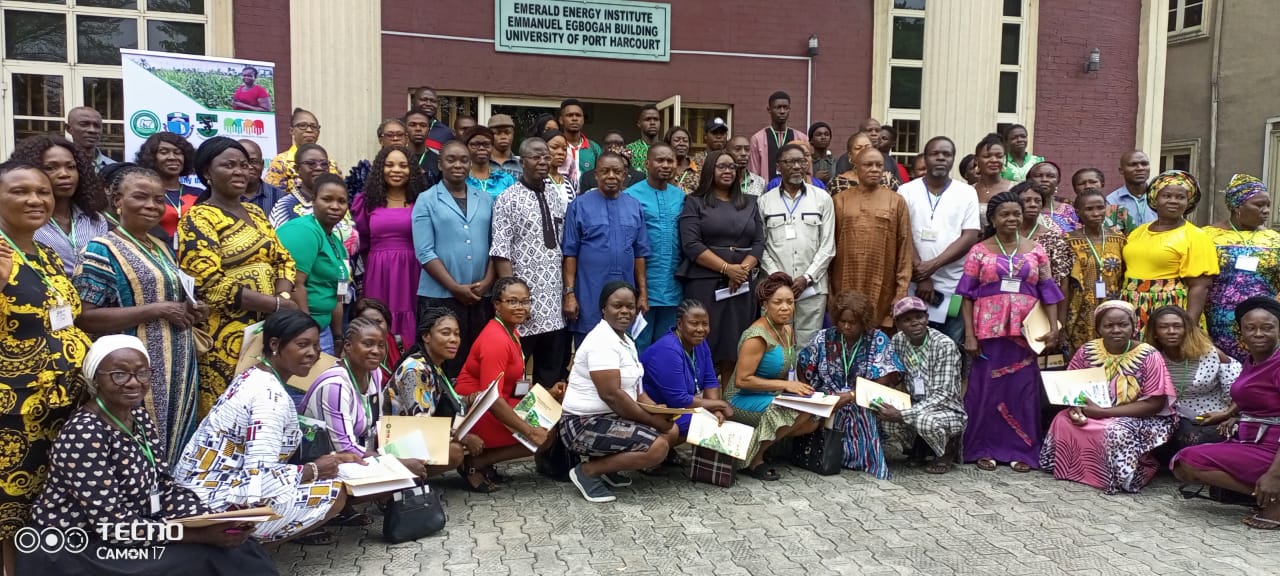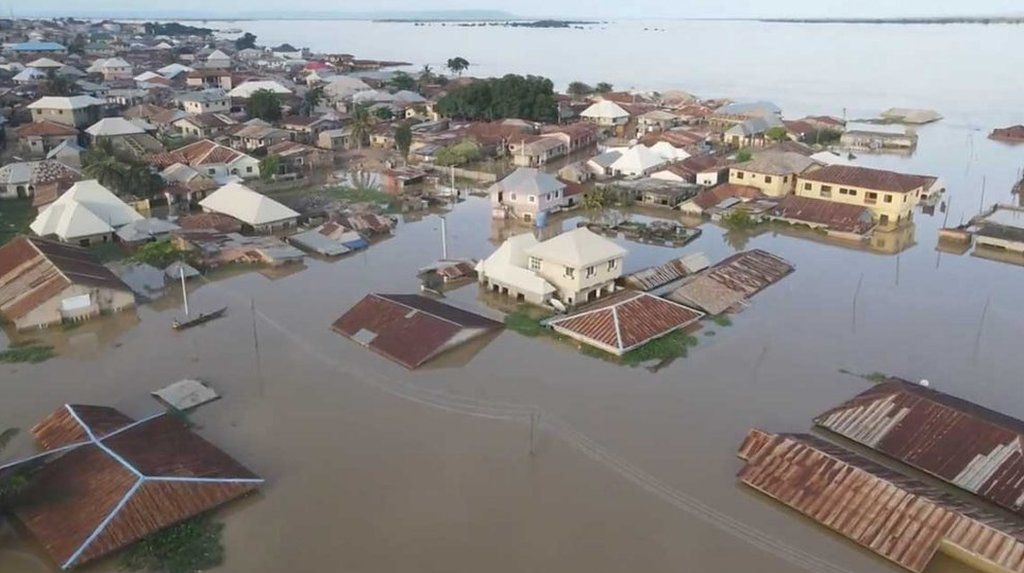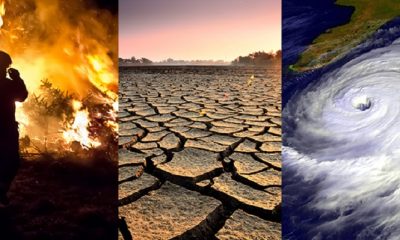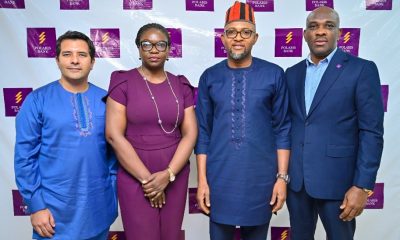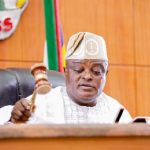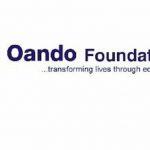World
$81b Spent On Climate Change In 2015—Report

A new report published by the African Development Bank (AfDB) says a total of $81 billion was mobilized for projects funded by the world’s six largest multilateral development banks (MDBs) in 2015 to fight climate change.
The report further pointed out that this included $25 billion of MDBs’ direct climate finance, combined with a further $56 billion from other investors.
The latest MDB climate finance figures are detailed in the 2015 Joint Report on Multilateral Development Banks’ Climate Finance, prepared by the Asian Development Bank (ADB) together with MDB partners: the AfDB, the European Bank for Reconstruction and Development (EBRD), the European Investment Bank (EIB), the Inter-American Development Bank Group (IDBG), and the World Bank Group (WBG).
This important contribution to the global climate change challenge was reinforced last year by pledges from all of the MDBs to significantly increase their climate finance in the coming years. They made these pledges in the run up to the COP21 Paris Agreement, the world’s first universal climate accord adopted in December last year by 195 countries, the report said.
The report covers the 2015 year and shows that MDBs delivered over $20 billion for mitigation activities and $5 billion for adaptation.
Mitigation activities involve the reduction of greenhouse gas emissions through energy efficiency measures and the use of clean, renewable energy sources, while adaptation measures reduce climate vulnerability and increase resilience to climate change through, for example, investing in climate-resilient land-use and water resource management. Since 2011, MDBs have jointly committed more than $131 billion in climate finance.
Among the regions, non-European Union (EU) Europe and Central Asia received the largest share of total funding at 20%; with South Asia receiving 19%; Latin America and the Caribbean 15%; East Asia and the Pacific 14%; the EU 13%; Sub-Saharan Africa 9%; and the Middle East and North Africa 9%. Multi-regional commitments made up the other 2% of the total.
On a sectorial basis, the largest recipient of adaptation funding was for water and wastewater systems (27%), followed by energy, transport and related infrastructure (24%), and crop and food production (18%). Renewable energy received the bulk of mitigation finance (30%), lower-carbon transport received 26%, and energy efficiency activities 14%.
In Africa, where basic energy services remain scarce region-wide, countries are increasingly working to develop their substantial renewable resources to help reverse this trend. To support these efforts, in 2015 AfDB has provided $905 million of its own resources in climate change mitigation finance, backed by $58 million in external resources. As African countries also look to increase their resilience against climate impacts, particularly in the forestry, agriculture and land use sectors, AfDB has provided $305 million of its own resources, bolstered by $91 million in external funding, to support their adaptation efforts. The Bank is continuously looking for concrete ways to catalyze private sector engagement such as through equity financing, partial risk guarantees, and climate risk insurance.
“At AfDB, we believe that Africa stands at the threshold of an exponential shift in clean energy access, and that over the coming decades African citizens can benefit from a widespread increase in climate-friendly energy use and green development. We have set ambitious goals for our institution to help ensure this happens, supporting innovative projects in solar, wind, geothermal, and water,” said Alex Rugamba, Chair of the Bank’s Climate Change Coordination Committee (CCCC). “In line with our member countries’ requests in preparation of the Nationally Determined Contributions (NDCs) regime, we have particularly focused on institutional capacity building, increasing our support for technical assistance (TA) five-fold from seven projects to thirty-five projects in one year. As countries work to align their development goals with their pledged NDCs in the Paris Agreement, we believe this focus on strengthened capacity is an early signal of commitment to meet these goals. Going forward, this could be an important new area of engagement.”
Given the role of MDBs in catalyzing finance, the inclusion in this year’s report of a common tracking approach for climate co-financing is a significant step forward in making the reporting of climate finance flows more robust and transparent. MDBs have also been working closely together to harmonize reporting on greenhouse gas emissions and the use of proceeds from MDB green bonds.
Moving forward, the report notes that the MDBs will scale up climate finance activities across multiple sectors, in particular in renewable energy and energy efficiency; low-carbon and climate-resilient cities, regions and industries; low-carbon transport; natural resource efficiency; and climate-smart agriculture and food security. These efforts will help countries meet their commitments under the Paris Agreement, moving to a low-carbon, more resilient future.
World
Irvine, Dreaminfluence Accelerate Growth of Africa’s $3bn Creator Economy
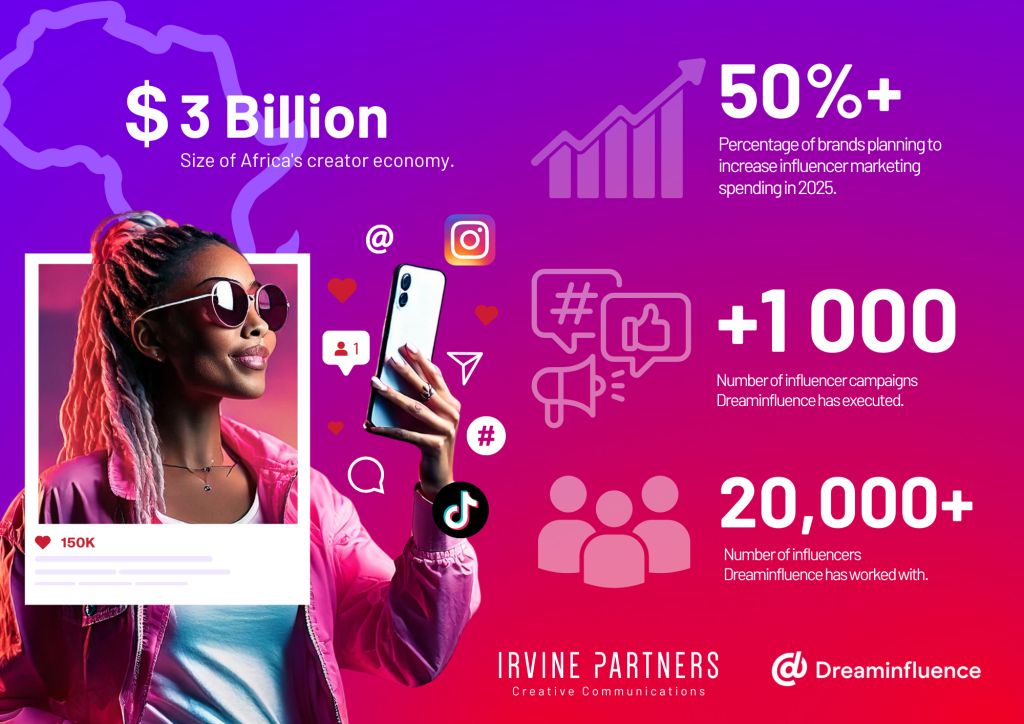
Irvine Partners, a leading creative communications agency with offices in Africa and Europe, has signed an exclusive licence with Dreaminfluence as their Africa partner. Dreaminfluence, an all-in-one platform that empowers brands to build and scale influencer marketing has executed 1,000s of influencer campaigns and worked with over 20,000 influencers.
This innovative platform’s digital capabilities will support the content creators who are driving Africa’s rapidly expanding $3.08 billion creator economy. Despite creators on the continent taking advantage of platforms like TikTok, African creators still earn significantly less than their counterparts in other regions, despite producing high-quality content. Furthermore, infrastructure limitations and a digital skills gap hinder the progress of the creator ecosystem.
Monetization should not be out of reach for African creators says Rachel Irvine, CEO of Irvine Partners. She adds that “Dreaminfluence provides digital infrastructure and connects creators to brands, backing their work so they too can unlock opportunities while brands can grow their reach with authentic content that resonates with audiences.”
Dreaminfluence CEO, Mads Wedderkopp, explains “We have worked with many leading brands in the Nordics and are excited to finally bring our platform to Africa through this exclusive partnership with Irvine Partners.”
“The decision to work with Irvine Partners as our Africa partner was a no-brainer, given the roster of clients they serve, and their continental and European footprint.”
Some of the leading brands that use Dreaminfluence for their influencer campaigns are Nivea, L’Occitane, and Estee Lauder Group.
How it works
Dreaminfluence was founded in 2018, to transform influencer marketing from being about affiliate links and discount codes to focusing on actual brand ambassadorship. This vision is translated into the features that Dreaminfluence offers, for both brands and influencers.
These brand features include:
-
Discovery of influencers: Brands can find the right influencers for their campaigns, without wasting time on influencer outreach
-
Campaign analytics: Track campaign performance, report the value and identify the best-performing influencers
-
Building relationships: Influencers move from short-term brand campaigns to long-term brand ambassadorship
-
Campaign management: Manage influencer payments, product shipping and secure content usage rights
-
Paying multiple influencers at a time with one click
For influencers, the features are:
-
Apply to join a brand team or campaign through the app
-
Be selected as part of the ambassador team
-
Join new campaigns when they are published
-
Run all campaign admin including payments, content ideas, and approvals through the app
The Dreaminfluence difference
Irvine Partners is constantly working with influencers across Africa on different campaigns for its clients and Dreaminfluence provides an innovative way to streamline agency relations with leading and emerging content creators on the continent.
Mohale Moloi, Content Director at Irvine Partners explains that “creator marketing studies tell us that more than 50% of brands plan to increase their spending on influencer marketing in 2025. But making sure these campaigns deliver results across the whole marketing funnel requires an in-depth understanding of market nuances, which is what we bring to the table.”
By working with a dynamic platform like Dreaminfluence, Irvine Partners will take influencer campaigns to the next level by combining local insights with a platform that makes everything from campaign selection to payments more efficient.
“We are most excited about the actionable campaign data and high ROI that Dreaminfluence offers,” says Moloi.
World
Cameroonian Diaspora Congress: An Essential Vector for Cameroon’s Influence in Russia
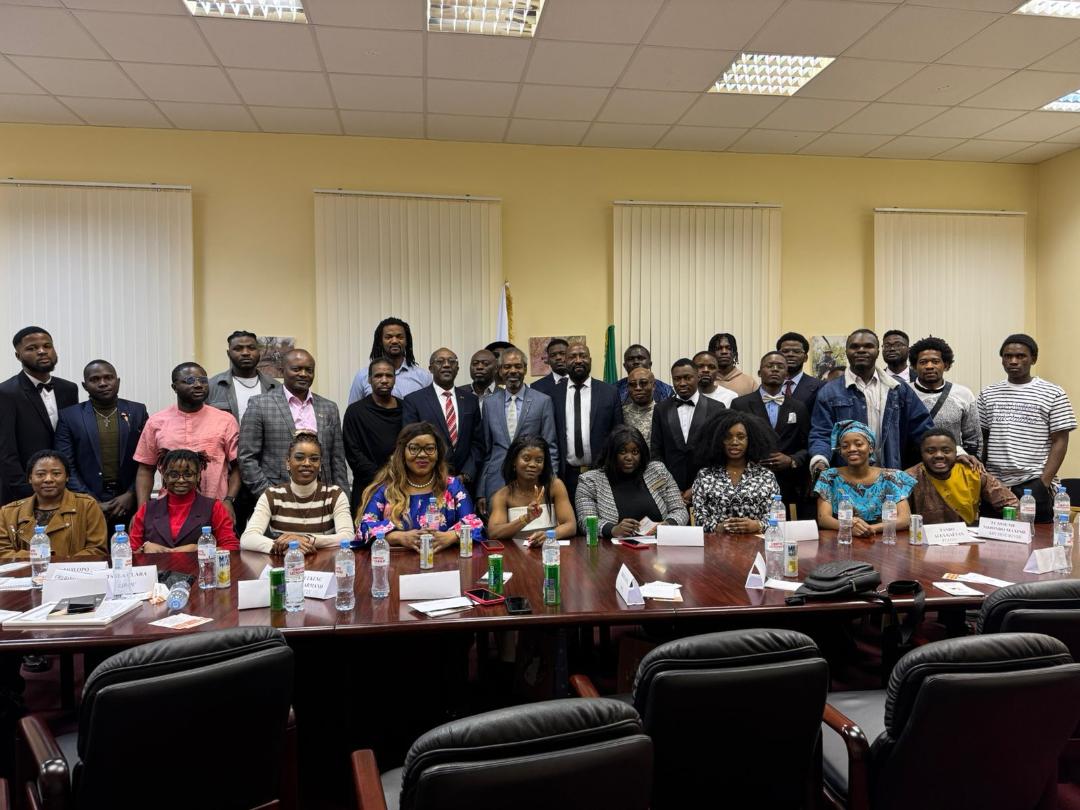
By Louis Gouend
The Cameroonian diaspora in the Russian Federation, although relatively recent, constitutes an essential vector for Cameroon’s influence and the maintenance of strong ties with the nation. In this perspective, and following a fruitful video conference on January 27, 2024, with the Minister of Youth and Civic Education, it was decided to organize, on February 8 and 11, 2025, the first celebration of Youth Day within the Russian diaspora.
This unprecedented initiative, benefiting from the Minister’s valuable support, aimed to consolidate patriotism and the spirit of initiative among Cameroonian youth residing in Russia, by offering a framework for exchange and promotion of Cameroonian cultural wealth. It mobilized Cameroonian students, young professionals, and entrepreneurs established in Russian territory.
The commemoration of the 59th anniversary of Cameroon’s Youth Day took the form of a dual celebration: a physical meeting at the Cameroonian Embassy in Moscow on February 8, 2025, and a virtual meeting on Zoom on February 11, 2025. These events brought together a total of more than 150 participants from over 50 cities in Russia, representing diverse backgrounds, including presidents of Cameroonian associations, members of the Diaspocam executive council, deans, honorary guests, and embassy officials.
The diaspora had the honour of welcoming, via video conference, Mr Mounouna Foutsou, Minister of Youth and Civic Education, whose encouragement and vision were a source of inspiration. The Minister outlined the productive initiatives implemented by the Cameroonian government in favour of its youth in the diaspora in Russia, emphasizing the willingness to support projects led by young entrepreneurs through a specific support mechanism and the operationalization of the guarantee fund.
During his address, the Minister recalled the commitments made during the video conference of January 27, 2024, emphasizing the need for increased collaboration between the government and the youth of the diaspora. He stressed the immense potential represented by this youth and reaffirmed the government’s commitment to addressing their concerns.
Among the initiatives put in place to support the youth of the diaspora, he mentioned:
- The Guarantee Fund for Young Entrepreneurs (FOGAJEUNE), which finances projects in four key sectors (agriculture, digital economy, industry/crafts and technological innovation).
- The special DIALYJ window, designed to promote co-ventures between young people from Cameroon and the diaspora.
- The Program to Aid the Return and Integration of Young People from the Diaspora (PARIJEDI), which facilitates the return and integration of young people in Cameroon.
“We express our deep gratitude to the Cameroonian government and personally to Minister Mounouna Foutsou for their support of our initiative,” said the President of Diaspocam, Louis Gouend. “Thanks to their assistance and the support of the Cameroonian Embassy in Russia, we were able to organize this important event, which has strengthened ties between the diaspora and Cameroon.”
Aware of the positive impact of this first celebration, we hope that this innovative initiative will be included in the calendar of activities of the Ministry of Youth and Civic Education for the years to come.
Diaspocam establishes a legal platform to come together, helps each other, interacts and establishes viable strategic networks and partnerships; presents, shares and expands proven diaspora business models; promotes and assists businesses and investments in Cameroon.
It strengthens a good image of Cameroon in Russia while maintaining close liaison with the Cameroonian and Russian governments and any other representative body pursuing objectives similar to those of the Association. Cameroonian Diaspora in the Russian Federation is a public organization which encourages participation, representation, diversity and cooperation between Cameroon, African diaspora and Russian society.
World
African Union Launches Credit Rating Agency to Rival Fitch, Others
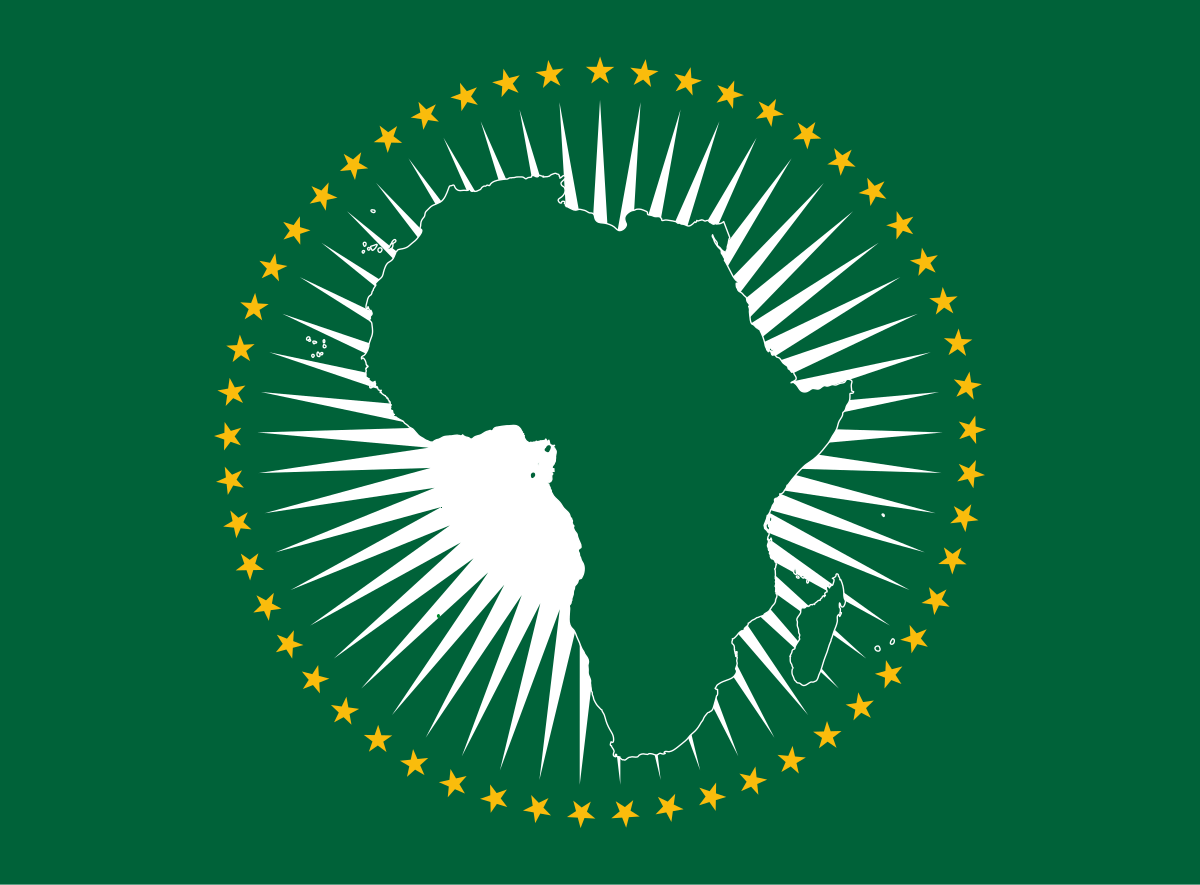
By Adedapo Adesanya
The African Union has announced the launch of its rating agency, the African Credit Rating Agency (AfCRA) to provide accurate ratings for countries on the continent.
According to Kenya’s President, Mr William Ruto, while unveiling the new agency at an AU event held in Addis Ababa, Ethiopia on Friday, AfCRA will address biases by global rating firms.
Global firms like Moody’s, Fitch and Standard & Poor (S&P) are some of the ratings agency which provide insights into African countries to aid investors and stakeholders.
There have been criticisms that these ratings lead to higher borrowing costs for African countries and make it harder for them to access international financial markets.
“Global credit rating agencies have not only dealt us a bad hand, they have also deliberately failed Africa,” Mr Ruto stated during the launch.
“They rely on flawed models, outdated assumptions, and systemic bias, painting an unfair picture of our economies and leading to distorted ratings, exaggerated risks, and unjustifiably high borrowing costs.”
According to President Ruto, improving Africa’s rating by one notch could unlock $15.5 billion in additional funding for the continent, which could help replace a significant portion of official development assistance or be invested in Africa’s infrastructure needs.
Despite Africa’s abundant natural wealth, only two African nations are currently ranked as investment grade.
“It is time for Africa to use the right scale, one that reflects its true weight,” Mr Ruto added.
The African Union has previously criticized global rating agencies’ characterization of African economies. In January, the AU pointed out that Moody’s Ratings’ fluctuating assessment of Kenya’s outlook was flawed.
“As the continent continues its march towards economic integration and resilience, the establishment of the African Credit Rating Agency (AfCRA) represents a pivotal step in asserting Africa’s position on global financial governance.”
The agency aims to provide fair, transparent, and development-focused credit ratings that reflect the realities and potential of African economies.
The idea comes more than a year since the AU officially announced its plans to move forward with the project since September 2023.
The push for an African credit rating agency became viable in 2022 when Senegal’s former president Macky Sall, then the chairman of the AU, called for a new system to “end the injustices” faced by African countries.
-

 Feature/OPED5 years ago
Feature/OPED5 years agoDavos was Different this year
-
Travel/Tourism9 years ago
Lagos Seals Western Lodge Hotel In Ikorodu
-

 Showbiz2 years ago
Showbiz2 years agoEstranged Lover Releases Videos of Empress Njamah Bathing
-

 Banking7 years ago
Banking7 years agoSort Codes of GTBank Branches in Nigeria
-

 Economy2 years ago
Economy2 years agoSubsidy Removal: CNG at N130 Per Litre Cheaper Than Petrol—IPMAN
-

 Banking2 years ago
Banking2 years agoFirst Bank Announces Planned Downtime
-

 Sports2 years ago
Sports2 years agoHighest Paid Nigerian Footballer – How Much Do Nigerian Footballers Earn
-

 Technology4 years ago
Technology4 years agoHow To Link Your MTN, Airtel, Glo, 9mobile Lines to NIN


